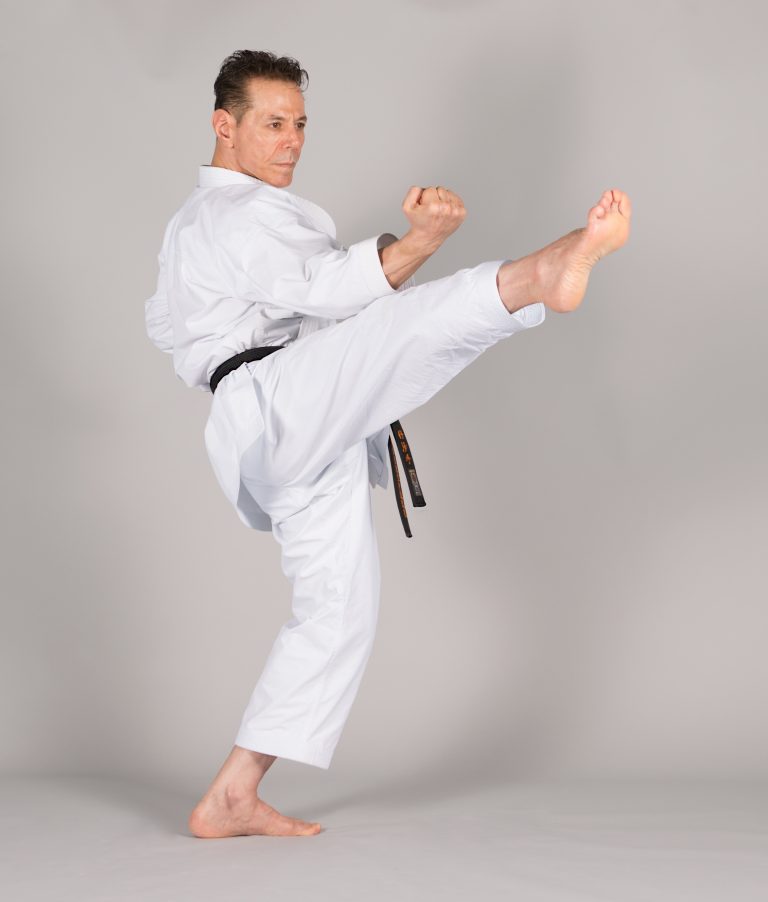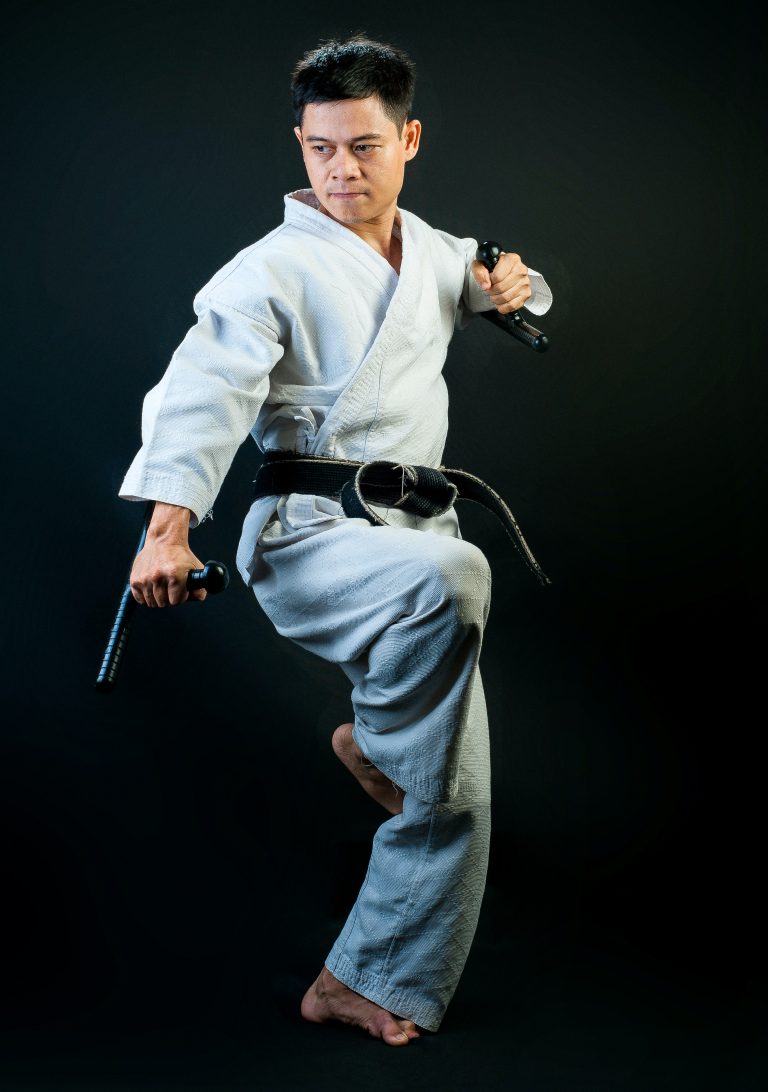What Are the Benefits of Karate Training?
Don’t let its deadly reputation fool you: Karate has much more to offer than just being a powerful self-defence martial art. While it certainly is one of the most effective martial arts when it comes to self-defence, it also provides a wealth of health and psychological benefits. In this blog post, we explore those benefits in greater detail, so keep reading to find out why karate is a great choice for anyone looking to improve their fitness and wellbeing.
A Comprehensive Defence System
Karate is a comprehensive self-defence system that combines physical techniques, mental discipline and spiritual awareness. Whereas other martial arts like boxing, Judo or Tae Kwon Do may focus on specific techniques and tactics of self-defence, Karate involves a much broader range of actions. It incorporates both striking and grappling, as well as blocks and ducks. What’s more, the unarmed style of combat helps to strengthen the body and increase muscle tone.
Boosts Endurance and Strength
Karate training can offer great physical benefits to practitioners of all ages and fitness levels. Karate combines aerobic conditioning with resistance training, meaning you can build both strength and endurance by practising it regularly. During training, you’ll work various parts of your body, such as your arms, legs and core, while also activating your cardio-vascular system. More substantially, you’ll improve your speed and agility.
Improves Flexibility
Karate helps to improve flexibility and range of motion through its dynamic stretching techniques. Karate stretches aid in the lengthening of the muscles which can lead to improved posture and balance. In addition, regular stretching also helps to reduce risk of injury as well as helping build core strength for kata and other fighting techniques.
Enhances Balance
Karate practice helps to improve overall balance and coordination. Whether you are kickboxing or performing kata forms, being able to maintain balance is key for success in karate. Better balance is also beneficial for daily activities like walking on uneven surfaces or balancing on one foot for long periods of time.
Develops Focus and Self-Discipline
Karate is great for developing focus and self-discipline – two qualities that are invaluable in all aspects of life. Karate training makes use of different techniques such as kata, which involves practicing various movements in sequence in order to develop better control and precision of movements. This slowly builds up focus, as well as self-confidence allowing you to apply these skills in other areas.
Reduces Stress
Finally, karate can help to reduce stress levels and provide an outlet which can allow the practitioner to expel any negative energy they may have. Karate training can help practitioners clear their minds, while at the same time creating a sense of accomplishment through progression in their training.
Conclusion
Karate is an excellent martial art for self-defence, but it also has many additional benefits for health and wellbeing. The discipline it requires helps practitioners to become more focused and disciplined, while at the same time providing an excellent workout that helps with strength, endurance and flexibility. It’s a great choice of exercise for anyone looking to improve their physical condition and mental wellbeing.
References:
1. https://www.blackbeltwiki.com/karate-benefits
2. https://blog.ashiharaonline.com/2017/06/benefits-of-karate/
3. https://www.beyondgenki.com/classes/karate-benefits/
4. https://thesmartlocal.com/singapore/karate/
5. https://ezinearticles.com/?Benefits-of-Tae-Kwondo-and-Karate&id=716445
What Are the Benefits of Karate Training?
Karate is a popular martial art that has been practiced for centuries. It is an art that requires skill, discipline, and mental focus. Karate is both a form of self-defense and a powerful tool for mental and physical development. In this blog post, we will explore the many benefits of karate training and answer some of the most frequently asked questions about this martial art.
1. What is Karate?
Karate is a Japanese martial art that was developed in the Ryukyu Kingdom during the 19th century. It is based on striking with the hands, feet, elbows, and knees, as well as grappling, joint-locking, throws, and other techniques. Karate is not just about fighting, it is also about personal growth, self-discovery, and character development.
2. What are the Mental Benefits of Karate?
Karate has numerous mental benefits. Practicing karate can help improve mental focus, concentration, and discipline. It also helps develop self-confidence, self-esteem, and self-awareness. The mental training in karate teaches individuals to control their emotions, manage stress, and develop a positive mindset. Through karate training, individuals also learn to set and achieve goals, persevere in the face of challenges, and overcome obstacles.
3. What are the Physical Benefits of Karate?
Karate is a physically demanding martial art that provides numerous physical benefits. Karate training involves various types of exercises that improve muscular strength, endurance, flexibility, speed, and coordination. It provides a full-body workout that enhances cardiovascular health, balance, and agility. Karate training also improves bone density, reduces the risk of osteoporosis, and lowers blood pressure.
4. Is Karate Good for Self-Defense?
Yes, karate is an effective form of self-defense. The techniques practiced in karate are designed to disable or incapacitate an attacker. The training also teaches individuals how to be aware of their surroundings, identify potential threats, and avoid dangerous situations. Self-defense training in karate also emphasizes the importance of verbal communication, de-escalation techniques, and escape strategies in dangerous situations.
5. What are the Different Styles of Karate?
There are numerous styles of karate, each with its own unique training methods, techniques, and philosophy. Some of the most popular styles of karate include Shotokan, Goju-ryu, Wado-ryu, Shito-ryu, Isshinryu, and Kyokushin. Each style has its own particular focus and emphasis, ranging from traditional forms and technique practice to sparring and self-defense training.
6. Can People of Any Age Practice Karate?
Yes, karate can be practiced by people of any age. Karate training programs are designed for all age groups, from children to senior citizens. Karate provides a fun and engaging form of physical activity for children and helps build strength, coordination, and discipline. For adults, karate training is a great way to stay in shape, relieve stress, and learn self-defense skills. Seniors can also benefit from the practice of KArate, as it helps maintain flexibility and balance, and improves cognitive function.
7. Is Karate Safe?
Karate is a safe martial art when practiced properly. Karate training emphasizes safety, discipline, and respect for others. Injuries can occur, but these are usually minor and can be prevented by proper training and safety precautions. Safety gear such as mouthguards, groin protectors, and shin guards can be used to reduce the risk of injury during sparring practice.
8. What Equipment Do You Need for Karate Training?
The equipment required for karate training varies depending on the style and training program. However, some of the basic equipment needed for karate training includes a Karate Gi (uniform), belt, protective gear (mouthguard, groin protector, shin guards), and training equipment such as punching bags, focus pads and kicking targets. Some schools also require protective headgear for sparring practice.
9. How Long Does It Take to Learn Karate?
The time it takes to learn karate varies from person to person and depends on several factors such as the frequency of training, dedication, and natural ability. Generally, it takes several years of consistent training to reach a level of proficiency in karate. However, it is important to remember that learning karate is a lifelong journey of self-improvement and not just the acquisition of a skill or ability.
10. Can Karate Help Manage Stress?
Yes, karate can help manage stress. Karate training involves physical activity, meditation and breathing exercises, all of which can help reduce stress levels. Karate also emphasizes the importance of mental focus, discipline, and positive thinking, which can help individuals manage stress in their daily lives.
Conclusion
Karate training is a powerful tool for anyone seeking to improve their mental and physical well-being. It is an art form that provides numerous benefits, from self-defense skills to enhanced focus, discipline, and self-confidence. By practicing Karate, individuals can achieve a greater sense of self-awareness and personal growth, and improve their physical health, cognitive function, and overall quality of life.
Inhaltsverzeichnis






